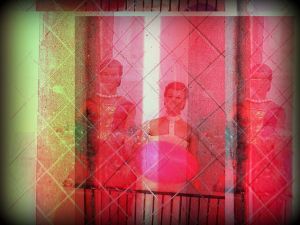“GSD” stands for “Gender and Sexual Diversities.” It’s also the new acronym that a London advocacy group called Pink Therapy would like to see replace what we now universally refer to as “LGBT.” The therapists argue in a new video that the amended term would be more inclusive to people who may not always fit into traditional gender or sexual behavioral spectrums.
Fair enough.
But an important question to also ask is whether a more gender diverse term could actually alienate folks who consider themselves to be less motivated by gender and more specifically identify as gay, bi or lesbian? Could this renaming also draw a line between elders in the community and emerging voices? And does the new acronym risk watering down what’s established to be the LGBT community (for lack of a better term) insofar as politics and the law are concerned?
For years, some critics have argued that transgender or gender non-conforming individuals actually have little to do with the gay and lesbian movement aside from the shared politically motivated fight for equal rights – an enormous fight that has certainly brought people together for the better. One might argue that someone, for example, who is a biological male – but who identifies as a female – is anything but gay or lesbian. She is, by all accounts, a woman. And while it may take time to reconcile the physical with the emotional (as far as social expectations), there’s really no arguing that someone who identifies as a woman is very much a woman and should be treated as such. The same could be applied to a biological female who is a man. It doesn’t necessarily mean they are attracted to the same sex – though they could be. But it’s not an absolute by any means.
Gender non-conformists are certainly a part of this discussion, too, but they also may have other concerns that are important to acknowledge. And while they may not always identify with simply one gender marker (as stated by society), they, too, deserve the same respect for however they view their identity – sexually or otherwise. Just as there is a scale (thanks, Kinsey) when it comes to heterosexuality and homosexuality, it makes sense that this could also be applied to gender – especially it terms of societal constructions. Not everyone, for example, exists on one of the scale or the other.
But the new GSD acronym, the Pink Therapists explain, would also open the door to other sexual persuasions – like swingers and really anyone who’s engaged in any non-traditional relationship. They believe this community is bigger than simply being LGBT.
It’s an interesting point. But one that may take quite awhile to really catch on considering the political implications of having to evolve a definition that is still very much in flux, especially with opponents of equal rights. Changing this definition – a definition that helps to join people together – could push the equality movement back by causing more confusion and alienation (even though it seeks to be more welcoming) than any solidarity that might spring from it in the present tense.
Could there also be a danger in trying to create an even more distinct “us” and “them” mentality? Or would it be more advantageous for this equal rights cause to perhaps lessen the differences and accept that as people – as humans – we have a lot more in common than we do differences?
What do you think: Would you identity as GSD or LGBT? Does GSD acknowledge the transgender community enough? Does LGBT leave people out?


“One might argue that someone, for example, who is a biological male – but who identifies as a female – is anything but gay or lesbian. She is, by all accounts, a woman.”
While I agree that people claiming trans* identities do often have different (yet connected) concerns from those who identify as LGB, framing the argument as LGB or T totally silences and makes invisible those who identify as both T AND LGB.
While I don’t know that I have a stance on the LGBT vs GSD debate yet, I do know that I am increasingly frustrated by the continued invisibility of trans* folks in LGB communities. We have unique needs at times, but many of us trans* folks are very much a part of LGB communities as well.
Great point! The trans community should never be ignored. In fact, in Philly this community is incredibly organized and deserve to be acknowledged for it. In the end, perhaps it’s most important to realize that there is no one way to look at gender or sexuality. Society likes neat labels and to box things into categories, but it doesn’t always enhance our daily lives. Thanks for sharing.